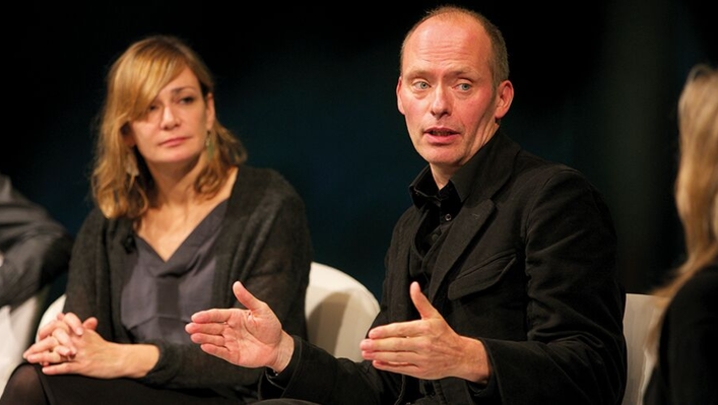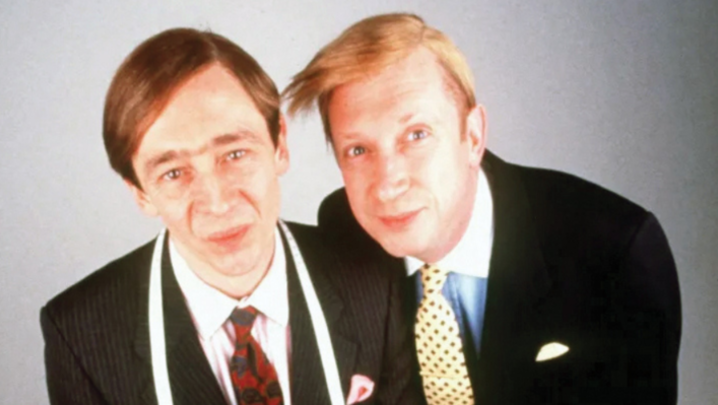Matthew Bell hails the show that single-handedly transformed the public view of the corridors of power
By a delicious irony, Yes Minister is being rerun on BBC Four at the same time as the Covid inquiry grills the country’s leading civil servants and politicians.
No one, though, could confuse the fictional Sir Humphrey Appleby with Party Marty or the deputy cabinet secretary who brought a karaoke machine to one of the illegal lockdown parties at 10 Downing Street.
Sir Humphrey, played by Nigel Hawthorne in full scenery-chewing mode, is the wily, supercilious Permanent Secretary to new Minister of Administrative Affairs Jim Hacker (Paul Eddington, fresh from his breakthrough role in another classic sitcom, The Good Life).
The premise of Yes Minister, which ran on BBC Two for three series from 1980 to 1984, was simple: idealistic but bungling minister tries to reform government and is invariably frustrated by the dark arts of the civil service.
Explaining his role, Sir Humphrey says: “My job is to carry out government policy.” Hacker replies: “Even if you think it’s wrong?”
“Well almost all government policy is wrong,” responds Sir Humphrey, pausing to smirk for comic effect, “but frightfully well carried out.”
Episodes largely conclude with Hacker, bamboozled by a verbose Sir Humphrey monologue, acceding to the wishes of the Machiavellian civil servant, who responds with a knowing, “Yes, Minister”.
Learning from Sir Humphrey, Hacker becomes cannier and more cynical as the series progresses and chalks up a few victories.
The political satire was created by writer/director Jonathan Lynn, a natural Labour supporter, and Antony Jay, whose varied career included a stint with BBC current affairs and speechwriting for Conservative politicians.
Lynn and Jay made Hacker a political centrist; indeed, neither Conservative nor Labour parties are mentioned in Yes Minister. It was probably just as well. The BBC, arguably as faint hearted sometimes with politicians then as now, delayed the first episode until after the 1979 general election for fear of offending either party.
Famously, Yes Minister was the favourite show of Margaret Thatcher, a woman with no discernible sense of humour. The PM performed a sketch – apparently written largely by her press officer, Bernard Ingham – with Eddington and Hawthorne, which set the bar for cringeworthy TV very high indeed.
The two actors, both politically of the left, were horrified at having to appear with Thatcher in a sketch that TV writer Graham McCann has described as “only comical in its awkwardness”.
Yes Minister won five Baftas over just three series, three for best comedy series and a couple for Hawthorne’s performance. After a two-year pause, the series retuned as the equally successful Yes, Prime Minister.
Twenty-five years later, with Eddington and Hawthorne both dead, Yes, Prime Minister was revived by UKTV channel Gold with David Haig as Hacker and Henry Goodman as Sir Humphrey.
And still it refuses to go away. Lynn’s latest iteration, a play he wrote solo after Jay’s death – I’m Sorry Prime Minister, I Can’t Quite Remember – premiered this October.
In an interview with the Daily Telegraph discussing the play, Lynn looked back at the original TV series: “People and politicians now distrust the civil service in a way they didn’t used to. In the old days, people imagined it was men with bowler hats sitting around drinking cups of tea. Our series revealed that they are the people who mostly run the country.”
Yes Minister is gentler than the show it inspired, Armando Iannucci’s gloriously potty-mouthed The Thick of It – “The angry, rampaging bastard child of Yes Minister,” as broadcaster Andrew Marr described it.
Yet, more than 40 years after its debut, Yes Minister hasn’t dated, thanks to its pin-sharp writing and impeccable performances. And Iannucci, not a bad judge of comedy, lauds it as Britain’s best sitcom.
Yes Minister is on BritBox (all three series), Amazon Prime (series one) and BBC iPlayer (series two and three).







